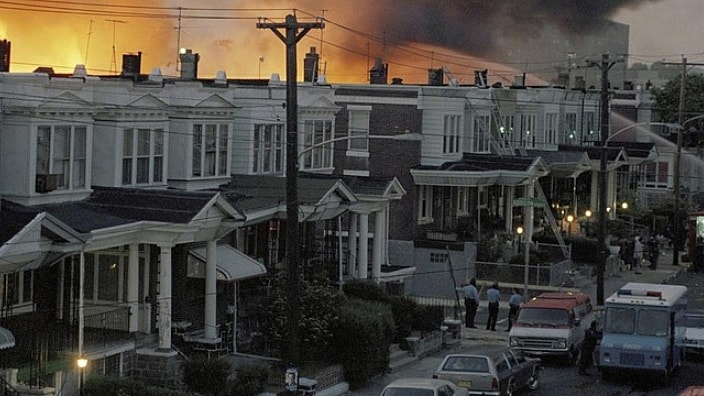The Philadelphia Medical Examiner’s Office and the University of Pennsylvania are at the center of a lawsuit in connection to the infamous 1985 bombing of Black liberation group MOVE.
According to The Philadelphia Inquirer, Lionell Dotson, the brother of two girls killed in the West Philadelphia blast, is suing the subjects for tortious interference with a dead body for keeping the remains of his older sisters, Katricia and Zanetta, a secret from him and his family for decades as their bones lingered at the Philly medical examiner’s office and UPenn.
Dotson’s mother, Consuewella Africa, died from COVID-19 in June 2021 shortly after discovering that researchers had not delivered her daughters’ remains to the family. Dotson is also suing for emotional distress.

“It means a great deal to me,” said Dotson, according to The Inquirer. “My sisters can’t speak for themselves, my mother can’t speak for herself. I’m the voice for the voiceless.”
Dotson, then 13 years old and living with his grandparents, found out that his sisters, along with three other children and six adults, died on May 13, 1985, when Philadelphia Police detonated a bomb at MOVE’s Osage Avenue headquarters in West Philadelphia. There were only two survivors of the blast, which flattened area homes for blocks.
According to a report commissioned by the city and released earlier this year, independent researchers discovered that the Philadelphia medical examiner’s office failed to send staff to the scene to ensure the proper recovery of bodies.
Some of the bones, from a corpse the medical examiner’s office initially identified as B-1, were given to Alan Mann and Janet Monge, two anthropologists at UPenn, for assistance in identifying.
The Dotsons, who received remains and assumed they had buried their loved ones, were shocked to find out last year that the B-1 bones — which forensic scientists identified as belonging to Katricia Dotson — were stored by UPenn anthropologists for over three decades and, in some cases, showed in online lectures.
The lawsuit claims that despite knowing Katricia had next of kin alive and well, UPenn treated her like a scientific specimen rather than human remains. Another claim in Dotson’s suit is that the university still has or lost some of her remains.
Daniel Hartstein, a lawyer for Dotson, cited the treatment of his client’s sister as an example of scientific racism.
“If Katricia Dotson had been a 14-year-old white girl, would they have been holding the remains?” Hartstein wondered, according to The Inquirer. “I think the question is very disturbing.”
In a statement released in September, University of Pennsylvania claimed it had relinquished any MOVE remains in its possession.
Dotson said it comforts him to now have the remains of his sisters, which he received from the city in August.
“They may be little, but it’s big to me. With the help of my legal team and myself, I did not let them get discarded and forgotten,” said Dotson, The Inquirer reported. “I talk to them as if they were here — to tell them how much I miss them, how much I wish I could have done things with them. All the things they got cheated out of.”
Officials from the city and a spokeswoman for UPenn declined to comment on the pending litigation, which seeks unspecified amounts of punitive damages.
“We look forward to the discovery process,” said Bakari Sellers, one of Dotson’s lawyers. “I’m not sure the city does, or UPenn, but we do.”
TheGrio is FREE on your TV via Apple TV, Amazon Fire, Roku and Android TV. Also, please download theGrio mobile apps today!

